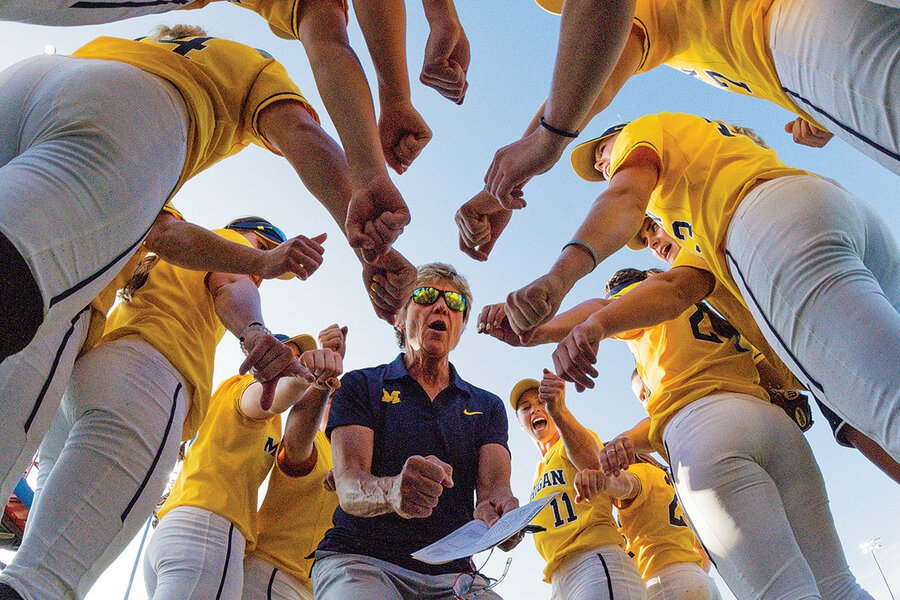50th Anniversary of Title IX - BWSF Voices of Reflection
As the 50th Anniversary of Title IX is celebrated, Black Women in Sport Foundation’s voice was well sought after by national and international media, professional organizations, universities, and more. BWSF will post some of the moments.
PODCAST: Christian Science Monitor - CSM DAILY
For The Christian Science Monitor's Daily podcast (forwarded below) the author used the interview with the Black Women in Sport Foundation for her introduction. If you click on the audio play button you can hear the podcast. You may also read the introduction in the following text.
TODAY’S INTRO
Title IX ushered many women into sports. Some are still sidelined.
Kendra Nordin Beato
Staff editor
I am a Title IX baby – born 10 months before the law passed on June 23, 1972. Title IX means different things to different people, but to me it means sports. In the 50 years since its passing, the federal law increased participation by women in collegiate sports by more than 600% – and as a varsity college soccer player and track sprinter, that included me.
But Title IX hasn’t benefited all women equally. Less than one-third of collegiate female athletes in the United States are women of color, according to the Women’s Sports Foundation.
Alpha Alexander knows something about that racial gap. When she arrived at the College of Wooster in Ohio in 1972, she had been a citywide tennis champion. At first, she turned away from sports to focus on her studies. “Our parents ... wanted to make sure that we would succeed in life,” she says. “So education was a high priority.”
But eventually she laced up her shoes, going on to play basketball, volleyball, lacrosse, and tennis. Having been the only Black athlete on her teams, she wrote her 1978 master’s thesis on women of color in collegiate sports.
Her studies led her to Temple University in Pennsylvania, where she worked in the athletic department with Professor Tina Sloan Green, the women’s lacrosse coach and the first African American to play for the women’s national field hockey team. They soon realized how few Black women worked in sports administration. “We didn’t see anybody that looked like us on that administrative level,” says Dr. Alexander.
So together with Olympic fencer Nikki Franke, and lawyer and former track athlete Linda Sheryl Greene, they co-founded the Black Women in Sport Foundation in 1992. As the group prepares to mark its 30th anniversary, Professor Sloan Green says lack of access, financial support, and cultural acceptance still holds back women of color in sports.
“My agenda right now is to make sure that young girls pre-K through eighth grade have access to a variety of sports,” says Professor Sloan Green. “I know it works. My daughter [Traci Green] would not be the head coach of Harvard tennis had she not been exposed to sports at an early age.”
As I share in today’s podcast, athletics made a big difference in my life. I’m grateful the Black Women in Sport Foundation is working to expand access to those opportunities.
The Christian Science Monitor interviewed Professor Tina Sloan Green and Dr. Alpha Alexander for the Title IX feature:
Title IX: 50 years later, a racial gap remains - CSMonitor.com
Title IX at 50: Examining the racial gap among female college athletes By Kendra Nordin Beato Staff writer, @KitchenReport
Participation by women in college sports has increased by more than 600% since the passage of Title IX. Yet a racial gap remains among the athletes.
Lexie Blair, a star softball player at the University of Michigan, grew up hitting and throwing on diamonds in Florida, where she was often one of the few women of color on the field.
“I’ve always been the Black girl pretty much on every single team, and if not, there’s probably just one other,” says Ms. Blair, who is interested in a career in sports communication after college. “So it is difficult sometimes ... to get a big group of people to understand [your perspective] when you just feel like it’s only you.”
Although participation by women in college sports has increased by more than 600% since the passage of Title IX in 1972, a racial gap remains among girls and women on athletic fields. Less than one-third of all collegiate female athletes are women of color, according to a 2022 report by the Women’s Sports Foundation.
“Title IX has been ... a profound success, but not equally for all people,” says Sherry Boschert, author of “37 Words: Title IX and Fifty Years of Fighting Sex Discrimination.” “If we want it to ... realize its full promise, we have to deal with those intersectional discriminations.”
Alpha Alexander knows the disparities. When she arrived at the College of Wooster in Ohio in 1972, she brought an impressive sports résumé: She had been citywide tennis champion in Dayton. As one of the few Black female students on campus, though, she felt pressure to excel. She decided to forgo sports to concentrate on her studies her first semester there. “Our parents ... wanted to make sure that we would succeed in life. So education was a high priority,” says Dr. Alexander, who has spent her career in sports administration.
But with 13 sports available to women at Wooster, she eventually laced up her athletic shoes. She played basketball, volleyball, lacrosse, and tennis. Being the only Black athlete on her teams, she wrote her 1978 master’s thesis on women of color in collegiate sports.
Her studies led her to Temple University in Pennsylvania, where she met and worked with Professor Tina Green, the women’s lacrosse coach and the first African American to play for the U.S. women’s national field hockey team. Dr. Alexander ended up working as an assistant in the athletic department there. “We didn’t see anybody that looked like us on that administrative level,” she says.
So together with Professor Green, Olympic fencer Nikki Franke, and prominent lawyer and former track athlete Linda Sheryl Greene, she co-founded the Black Women in Sport Foundation in 1992. As the group marks its 30th anniversary, Dr. Alexander and Professor Green believe lack of access, financial support, and cultural acceptance still holds back women of color in sports.
“My agenda right now is to make sure that young girls pre-K through eighth grade have access to a variety of sports,” says Professor Green. “I know it works. My daughter [Traci Green] would not be the head coach of Harvard tennis had she not been exposed to sports at an early age.”
This story accompanied our larger cover story on Title IX's fiftieth anniversary, available online here.


